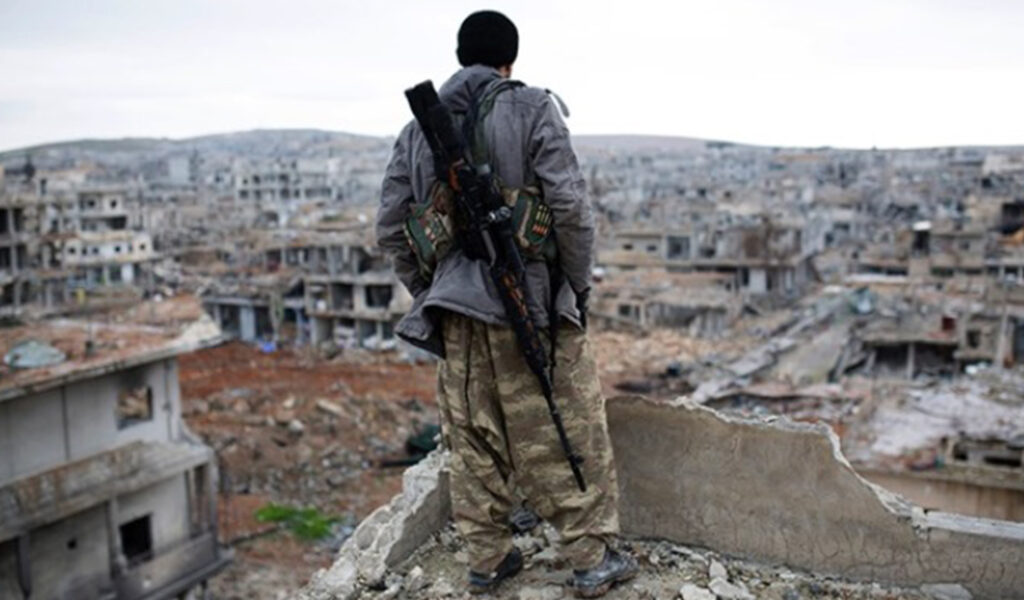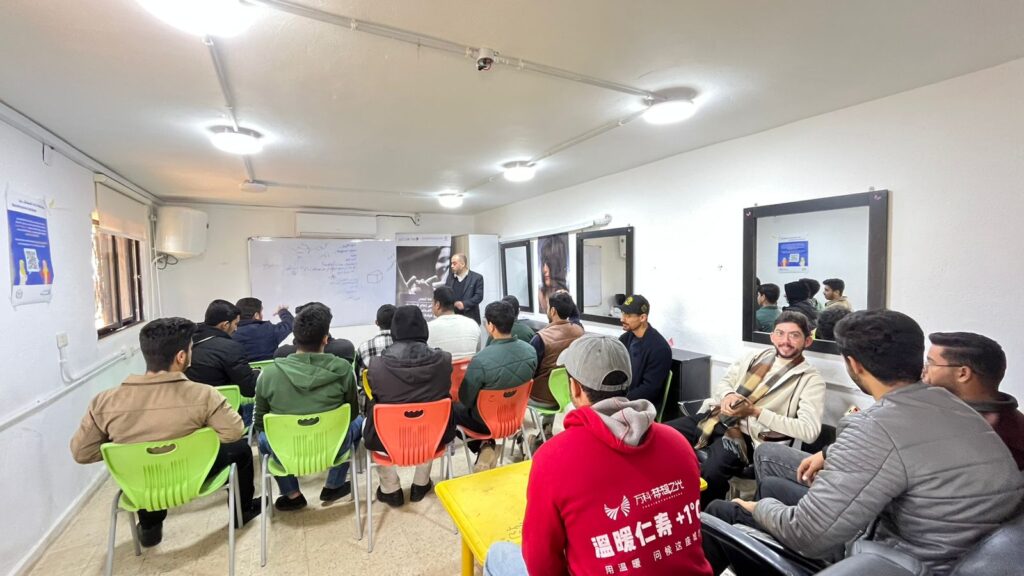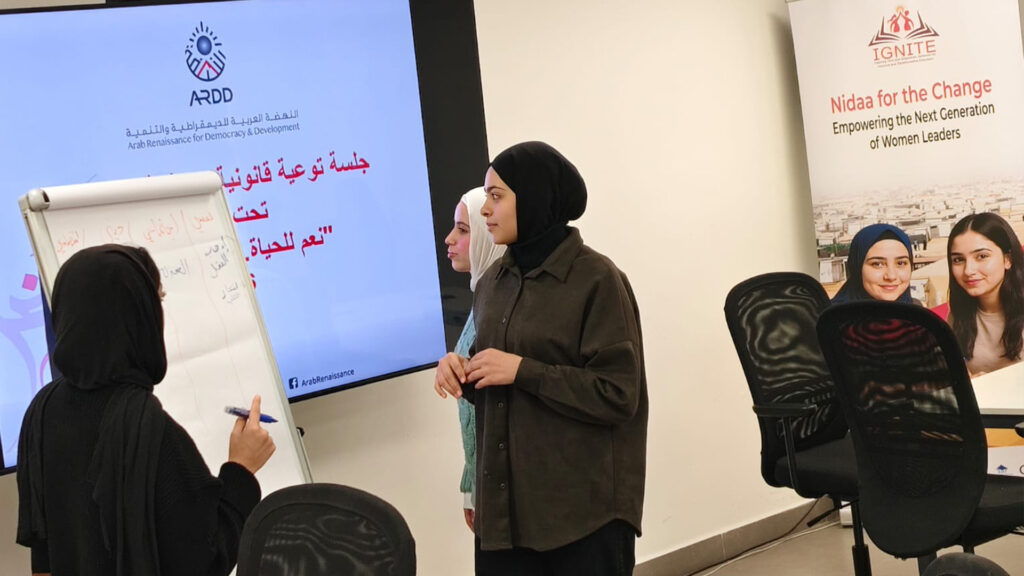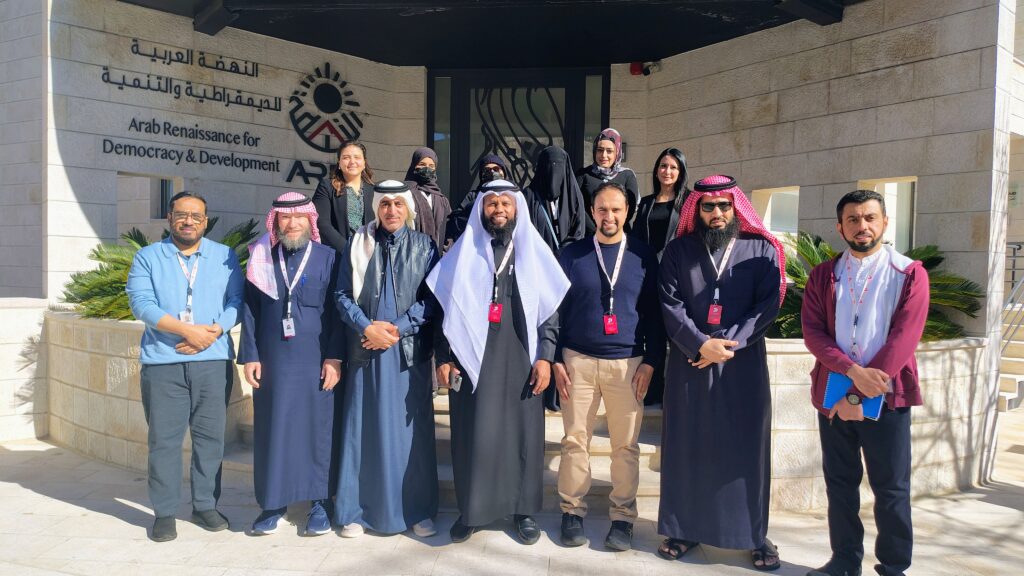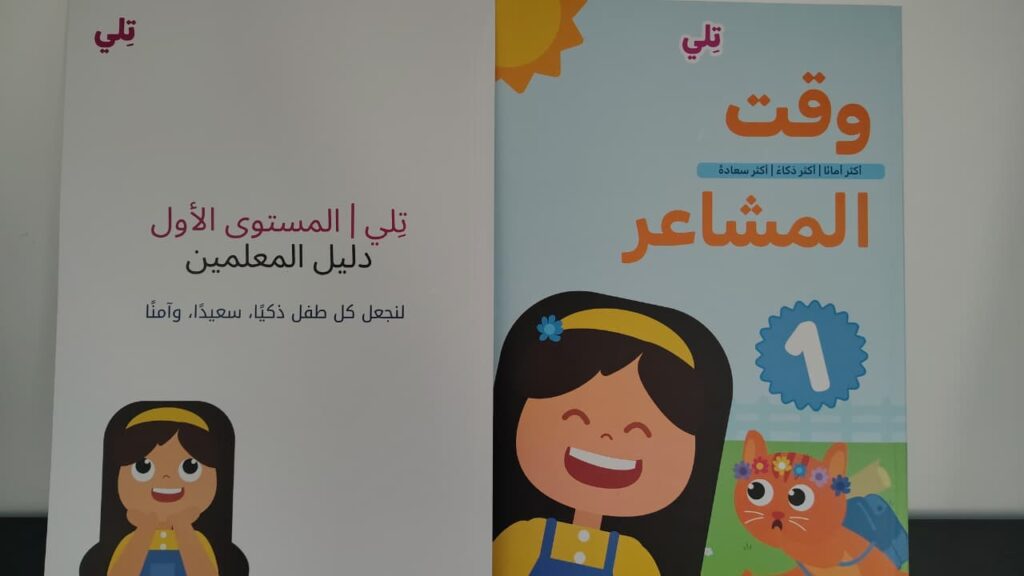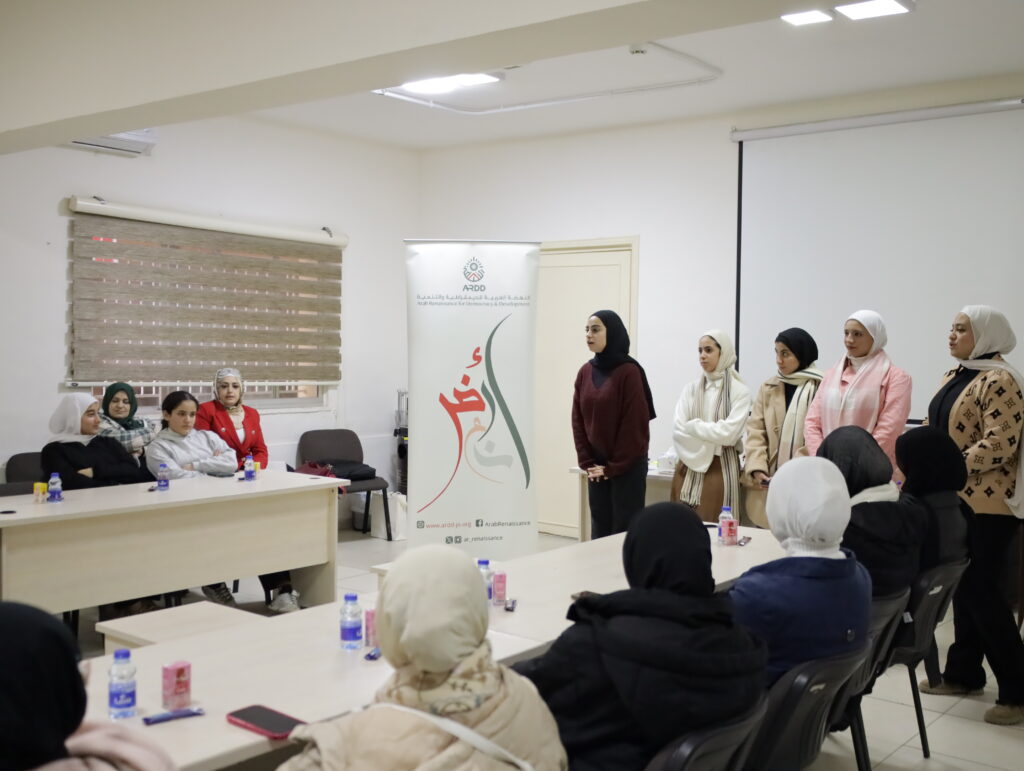On May 18th, the Renaissance Strategic Center (RSC) hosted the launch of Identity Building in Jordan and Kuwait: The Strategy of Inclusion and Exclusion (Palgrave Macmillan, 2024) by Dr. Odetta Pizzingrilli, Post-Doctoral Researcher at the University of Pisa and Consultant with RSC. The event brought together academic researchers and representatives from UN agencies, civil society, and international organizations.
Dr. Pizzingrilli’s book investigates how national identity in Jordan and Kuwait is shaped through mechanisms of inclusion and exclusion. Based on over 100 interviews and several years of fieldwork, the study analyzes the spatial and narrative dimensions that inform citizenship and belonging. The research focuses on four groups: Arab expatriates and Bedoon (Stateless) in Kuwait, and Circassians and Gazans in Jordan—communities that are integrated within state structures yet occupy distinct legal and social positions.
The discussion was moderated by Dr. Mariam Abu Samra, political scientist and RSC Coordinator, who framed the book within broader debates on governance, minority rights, and state formation in the Arab region. She described the work as relevant to various fields concerned with participation and exclusion.
The book, organized around two primary dimensions: space and identity, and how these evolve, mapping the changing contours of national belonging from the late Ottoman era to the present, through historical junctures such as the British Mandate, the development of rentier state systems, and the 1990–91 Gulf War. Spatial developments—such as the building of Kuwait’s 1920 wall or the removal of historical landmarks in Amman—are examined for their role in reinforcing dominant national narratives.
The conversation addressed how the built environment—including urban infrastructure, territorial boundaries, and natural features—contributes to identity formation. Examples discussed included Gazans in Jordan who recall Gaza through generational memory, reflecting the role of narrative and space in shaping emotional and political attachments.
The event concluded with a discussion of positionality, examining how the book contributes to ongoing regional analysis of identity politics and emphasizes the interplay of history, geography, and discourse in the construction and negotiation of belonging.


